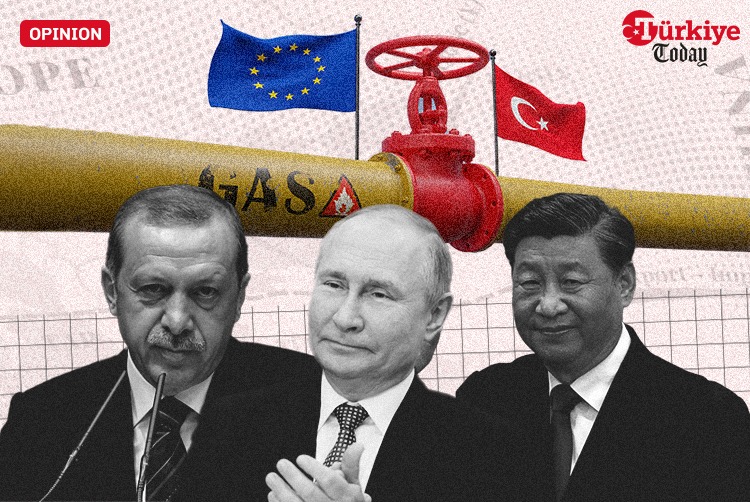
The recent meeting between Chinese President Xi Jinping and his Russian counterpart, Vladimir Putin, underscored the evolving geopolitical landscape, presenting a unique opportunity for Türkiye.
While the depth of the China-Russia partnership remains under negotiation, Türkiye is poised to become a crucial player in a potential Eurasian economic realignment.
Imagine a future where Türkiye transcends its geographical position and transforms into a bustling Eurasian energy hub. Russia's gas flows westward, not through traditional pipelines, but through a network centered in Istanbul.
Here, a revolutionary shift occurs transactions are denominated in renminbi, not the ubiquitous U.S. dollar. This renminbi-powered trade extends beyond Russia, becoming the cornerstone of Türkiye’s commercial relationship with China.
This scenario, while hypothetical, presents a compelling vision for Türkiye’s economic future.
Several key developments would unlock this potential:
Embracing the renminbi as a key currency for regional trade and establishing Istanbul as a renminbi settlement hub positions Türkiye as a pivotal player in the evolving global financial landscape.
While challenges exist, the potential rewards – a more diversified and resilient economy, a reduction in dollar dependence, and a stronger regional presence – are significant.
By strategically leveraging its geographical advantage and fostering renminbi-based trade, Türkiye can usher in a new era of Eurasian economic cooperation.
In the evolving China-Russia relationship, Türkiye’s position as a neutral party with strong ties to both becomes even more critical.
Türkiye can act as a bridge between these two giants, facilitating trade and fostering economic cooperation across Eurasia. By establishing a renminbi settlement center in Istanbul, Türkiye positions itself as a central hub for this new economic order, attracting investment and solidifying its role as a major player in the region.
Caner Ozdurak holds a Ph.D. in Financial Economics from Yeditepe University, preceded by an MA in Business Law and an MSc in International Finance from Istanbul Bilgi University. The author has also worked at prominent organizations such as the Finance Office of the Presidency of the Republic of Türkiye. He is currently a full-time Associate Professor of Macroeconomics at Beykoz University.